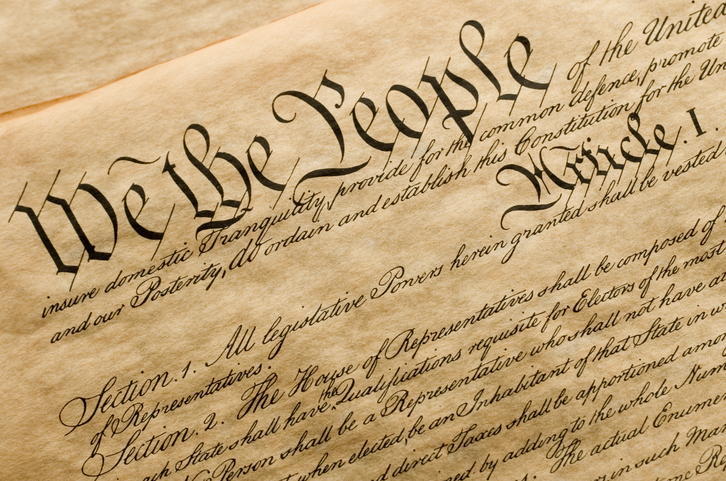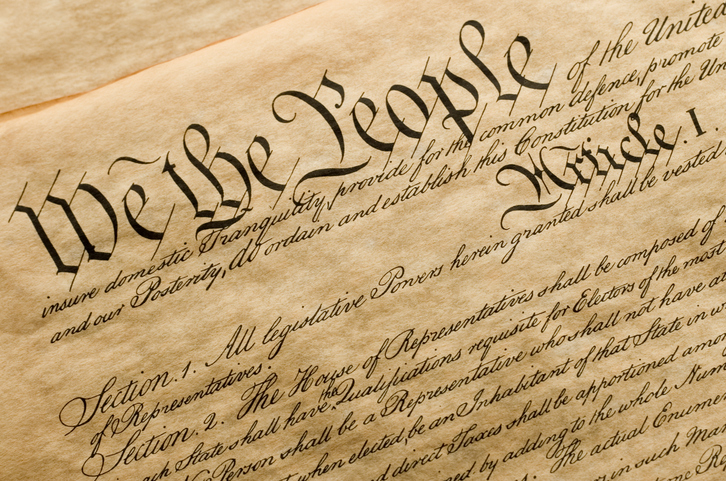Changing the Constitution is tough business, so there are a lot of rules in place before an amendment can be adopted (it has to pass the House and Senate with big majorities and then approved by a super majority of state legislatures). That means these attempted amendments are doomed to the cutting room floor of history.
Dueling
Certainly the most famous duel in American history took place in 1804, when Vice President Aaron Burr shot and killed Secretary of State Alexander Hamilton (as depicted in the hit musical Hamilton). But lots of people died from this strange form of quasi-legal consensual attempted-murder that in 1828 Congress considered an amendment to ban dueling. Amazingly, it couldn’t get the votes to pass.
Co-Presidents?
With the North and South clashing over many issues in the 1850s—primarily slavery—the Civil War was an inevitability by 1860. That year, a congressman from pro-slavery Virginia named Albert Jenkins was so worried that newly elected anti-slavery president Abraham Lincoln would outlaw the practice that he introduced an amendment that would split the strict and final powers of the presidency to two elected officials. (Jenkins figured that a Southern co-president could keep a Northern co-president in check.)
Voting rights for ‘widows and spinsters’
In 1920, the 19th Amendment was ratified, which gave all adult women the right to vote. It wasn’t the first attempt at women’s suffrage. In 1888, Illinois representative William Mason suggested an amendment that would give some women the vote: specifically “widows and spinsters.” The reasoning was that married women had their voting husbands looking out for them.
The United States of Earth
This country is known by a lot of names—America, the United States, the U.S., the U.S.A., and the United States of America, for example. A lot of those would’ve been made moot if Wisconsin congressman Lucas Miller’s 1893 amendment had passed. He wanted to change the country’s official name to “The United States of Earth.” Miller believed that the Republic would naturally and happily spread worldwide and politically encompass the entire planet—the name was just getting ahead of things.









